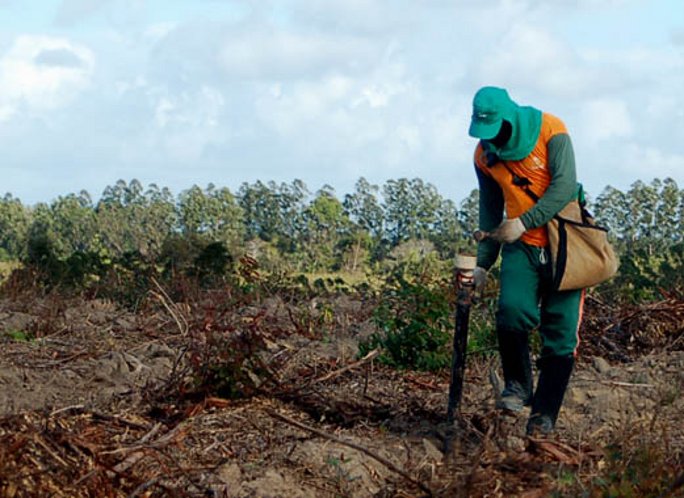Pesticides and GMOs in Brazil
Brazil is the world’s largest consumer of agricultural pesticides. The Brazilian pesticide market is estimated at US$8.5 billion dollars according to the Brazilian Chemical Industry Association, second only to the United States. In addition, pesticides banned in many countries continue to be used in Brazil, including acephate, acifluorfen, cyanazine, endosulfan (which is slated to be phased out in 2013), fluazifop-P-butyl, flufenoxuron, formesafen, imazethapyr, lactofen, paraquat dichloride, parathion-methyl, permethrin, profenofos, sethoxydim, thiodicarb, tolifluamide and triazophos. The majority of these chemicals are produced by multinational companies such as Bayer, BASF and Syngenta.
Fungicide use nearly tripled between 2006 and 2011, a chemical used to combat diseases such as soybean rust. Insecticide use nearly doubled in that same period and herbicide sales increased almost 45%. Linked to the increase in pesticide use is the increase in genetically modified (GM) seeds. Areas planted with GM seeds have more than tripled, from 9.4 million to over 32 million hectares since 2005.
Large-scale industrial agriculture requires the excessive use of pesticide, insecticides and herbicides because large-scale monoculture renders the crop vulnerable to many diseases. An important step to stopping the spread of these poisons, which severely harm the health of local populations and the environment, is to stop monoculture plantations. Campanha Permanente Contra os Agrotóxicos e Pela Vida (Permanent Campaign against Agrotoxic Chemicals and for Life) is active in building networks and reclaiming spaces for healthy traditional and agroecology practices.
